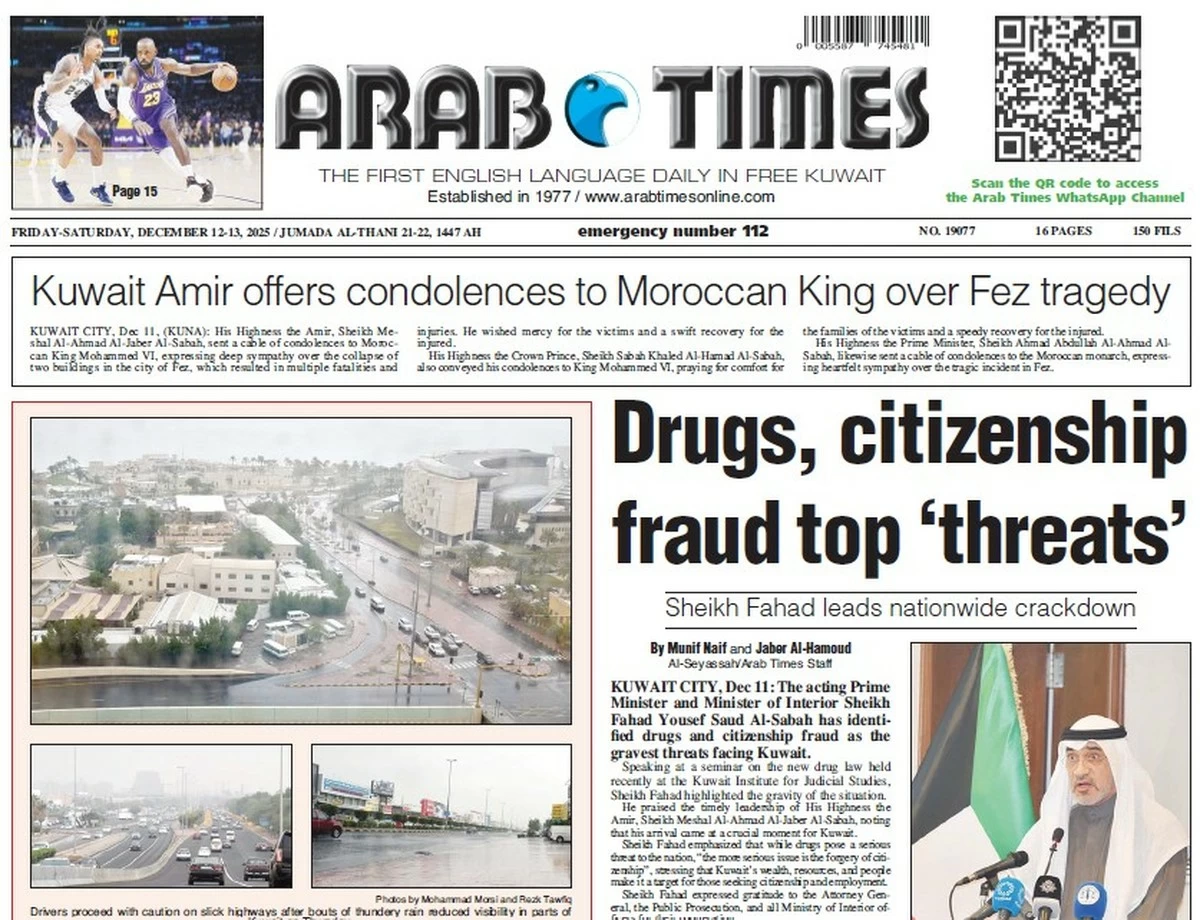30/11/2020
30/11/2020
PUBLIC interest has been reduced to satisfying MPs and influential people. It has become difficult to talk about a healthy country; in fact, our country suffers from a tumor that needs an expert to surgically remove it before it becomes cancerous.
It needs a wise and experienced surgeon – His Highness the Amir – to remove this tumor which might end up killing the entire body because the quota system ultimately leads to the nation being considered as a piece of cheese from which each one seeks to take his share, regardless of the considerations.
The tumor began to devastate Kuwait when the concept of “wasta” tightened its grip on all institutions of the State, dividing positions and jobs. Salaries are being paid to people who do not work. The most noble means of preserving people’s lives – overseas medical treatment – has become a gateway to cater for electoral ambitions at times or to favor the influential at other times.
This discussion could go on for long, and the scandals are too many to count. What is evident from them is just the tip of an iceberg of the corruption that hides many crimes against the homeland, even against humanity. “Wasta” prevents those in need of medical care from getting such a service because it is being used for electoral objectives or to favor certain MPs whose mouths the government is afraid of.
This strange and reprehensible phenomenon cost more than one and a half billion dinars about two years ago, equivalent to five billion dollars. According to a statistic published in newspapers years ago, more than 1,100 overseas medical trips were issued under the name of a certain parliamentarian.
This phenomenon is an ordained bribery that only exists in Kuwait, while in the rest of the Arabian Gulf states, sending any patient abroad is by the order of the ruler after medical reports are submitted, or at the expense of the patient. This is not the case with us where a patient is accompanied by three or four relatives whose expenses are paid by the embassies.
Given that this overseas medical trip had transformed into a source of illicit wealth, many cases were filed in the past few years against the health offices in some countries, either because of embezzlement, or overpricing in the bills in agreement with the companies in charge of securing the travel and treatment of the tourist/patient, or as a result of the State’s inability to pay financial obligations. In any case, this affects the reputation of Kuwait, and makes it seem like a country ravaged by corruption.
Bribery does not stop at this point. Rather, it also amounts to an exaggeration of the Ministry of Health’s budget of about KD 2 billion, while the real output is not even close to this amount. The Ministry of Health is not the only one suffering from wast-age or squandering of public funds.
There are also subsidized goods and services worth KD 4 billion, which end up being sold in the markets of India, the Philip-pines, and some Arab countries.
All this represents a waste … So if overseas medical treatment is a bribe for candidates and MPs, then subsidies represent a waste of the share of future generations of the national wealth. If the State seeks to serve the citizens, it shouldn’t do so through bribery, but rather by increasing the salaries or writing off loans, improving public services, and enforcing the law on everyone. After that, everyone can take his or her deserved rights.
By Ahmed Al-Jarallah
Editor-in-Chief, the Arab Times


